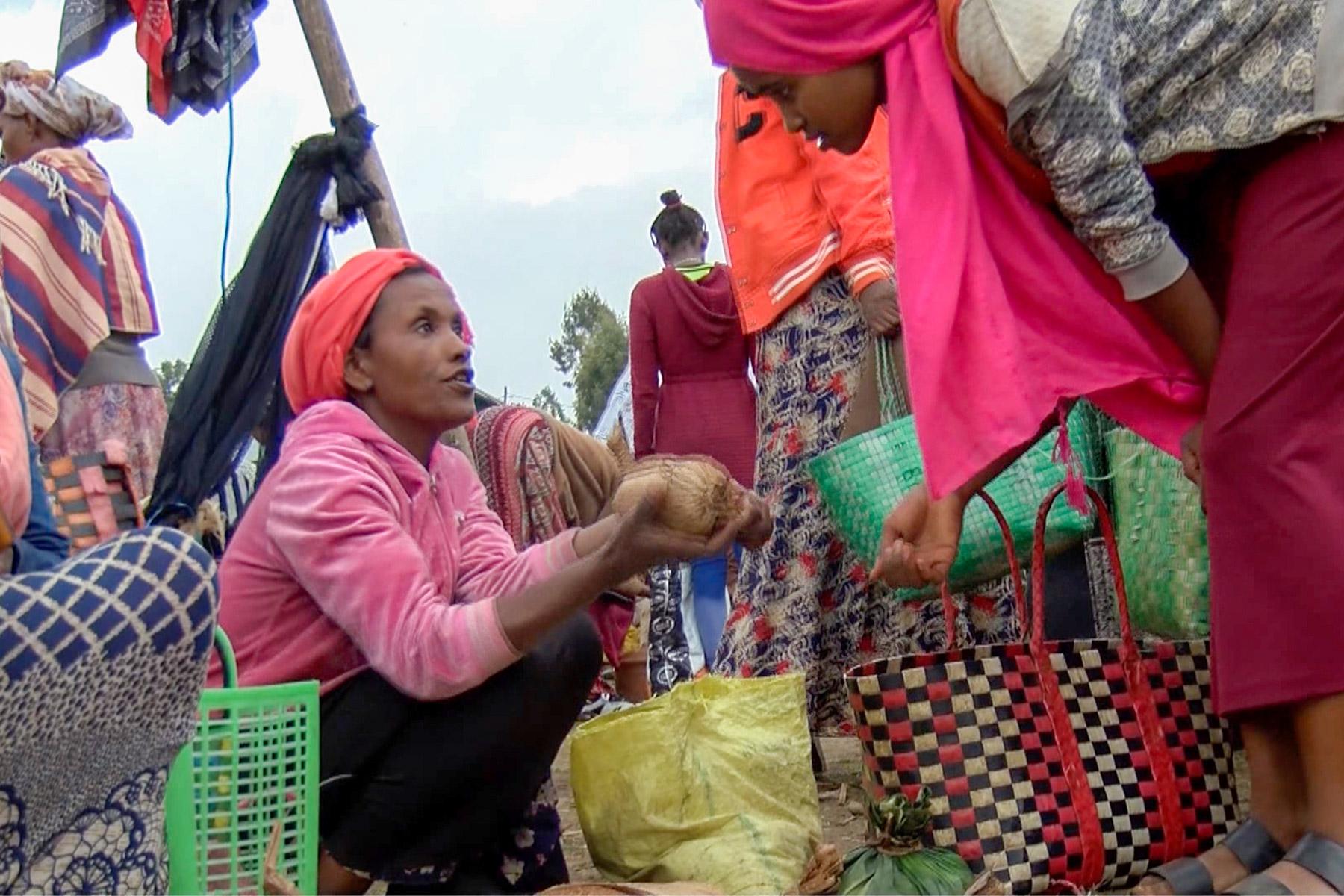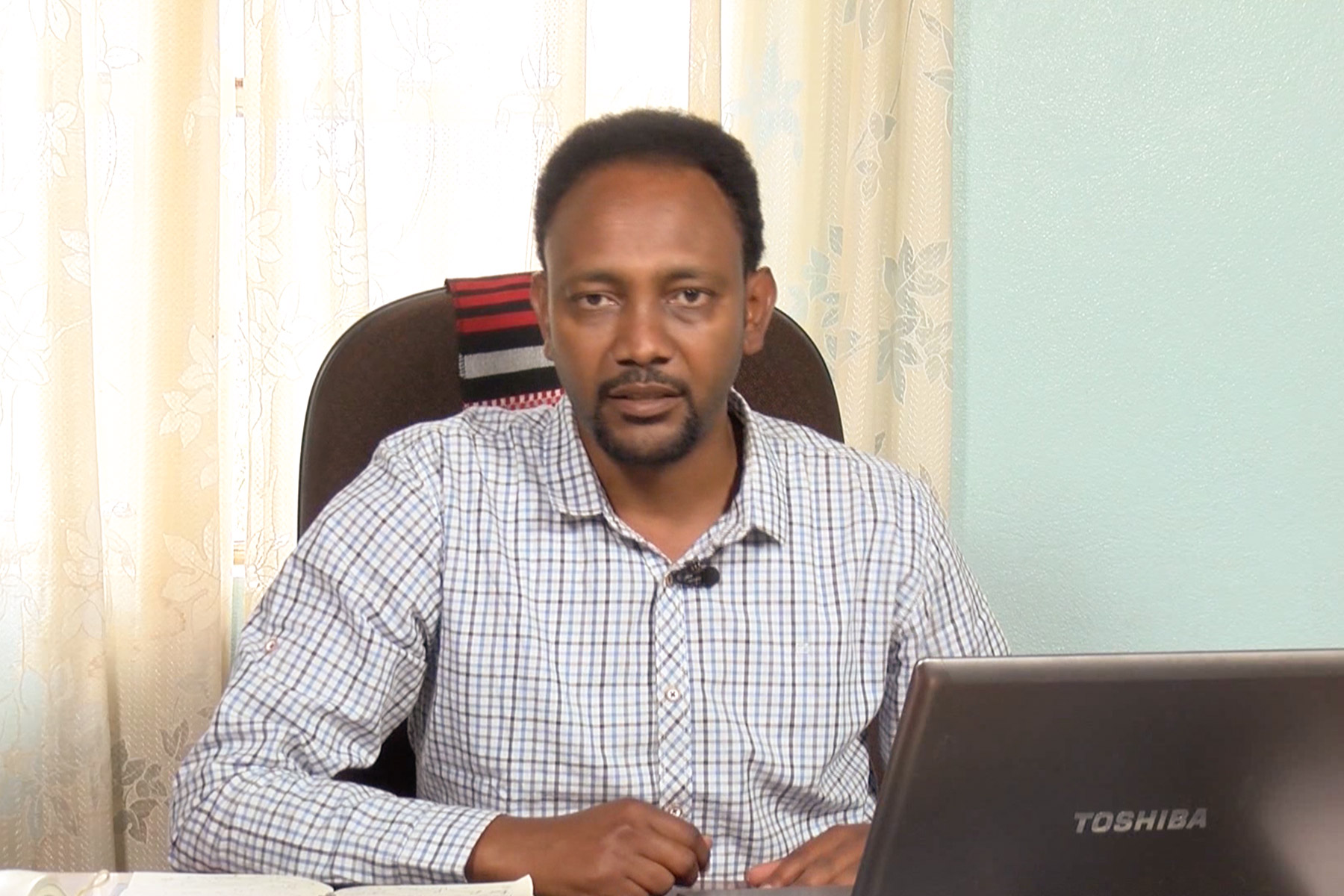Ethiopian church documentary shows returnee migrants can find hope at home

Returnee women migrants now earn income from their own businesses, supported by Symbols of Hope Ethiopia. Photo: EECMY-DASSC
LWF-supported project focuses on the risks and consequences of irregular migration
(LWI) – Determined to improve her family’s living conditions, Ayelech Abosie embarked on a journey that many unemployed young women and men in southeastern Ethiopia attempt. With little information about working abroad, a broker arranged her travel to Bahrain with the promise of a good job as a domestic worker and a decent wage that would pull her family out of poverty.
However, things did not turn out as Abosie expected. She was employed, but it was totally different. “I was working without any break, and not only that, my employer attacked me. Day and night, my eyes, ears and other parts of my body were wounded,” she recalls, pointing to scars around her eyes.
Abosie’s story is among those of other women told in a documentary produced by the Ethiopian Evangelical Church Mekane Yesus (EECMY) Development and Social Services Commission (DASSC) under its Symbols of Hope (SoH) project. The Lutheran World Federation (LWF) supports SoH as part of its objective to empower and build member churches’ capacity to respond more effectively to issues related to irregular migration.
In the documentary, Abosie narrates the inhumane working conditions and abuse she endured under her employer and her decision to return to Anna Balessa ward, Hadiya district, in Ethiopia’s region of Southern Nations, Nationalities, and Peoples. Back home, it was not any easier; there were no work opportunities.
In 2018 she joined one of the SOH women’s groups. With seed funding of Ethiopian Birr 10,000 (EUR 195), she set up a groceries’ stall at the local market, from which she provides for her family of four. “Now I run my small business. I wish to say thank you very much for Symbols of Hope Mekane Yesus DASSC,” adds 28-year-old Abosie. Although her business was significantly affected by the COVID-19 pandemic, sales are picking up after additional support from SoH at the end of 2020.
Transformation
The EECMY-DASSC has been implementing SoH since 2017. Relying on information collected via the local administrative structures, it organizes returnees and potential migrants into self-help groups to establish income-generating activities as alternative solutions to the often perilous job-seeking ventures abroad. The project’s activities include skills training and awareness raising about the potential risks of migrating through irregular processes often run by cartels whose only interest is the money migrants pay to be ‘connected’ to jobs abroad.
Mr Ashenafi Haile, commission branch director for development and social services at the EECMY Central South Synod says the SoH model is working. He refers to the changed lifestyles of a group of 15 women in Hadiya district who were trained in business skills, entrepreneurship and sharing good practices. Some are running coffee shops, involved in horticulture, soap production and making energy-saving stones.

Mr Ashenafi Haile, commission branch director, EECMY Central South Synod. Photo: Photo: EECMY-DASSC
The EECMY project also trains religious and local leaders to share messages about the risks and consequences of irregular migration in their congregations and communities. Many families are now aware of the potential negative impact of irregular migration and thankful that their loved ones returned home alive.
Most stories that returnees share from their migration journeys and their lives abroad are heartbreaking. Women are particularly at risk of getting caught in the hands of human traffickers and of ending up in exploitative working conditions abroad, says Ms Marina Dölker, LWF Program Executive for Diakonia and Development.
It is encouraging to see how the church has provided tangible symbols of hope that have empowered returnees to restore dignity and gain back control over their own lives.
“It is encouraging to see how the church has provided tangible symbols of hope that have empowered returnees to restore dignity and gain back control over their own lives”, she adds.
Learn how Ayelech Abosie and other women have found hope in the very places that they only saw despair.
Ethiopian church documentary shows returnee migrants can find hope at home from The Lutheran World Federation on Vimeo.
By LWF/P. Mumia
Symbols of Hope is an LWF program, focusing on empowering and building capacity in the LWF member churches to better respond to issues related to irregular migration.
EECMY has been an LWF member church since 1963. It has 10.3 million members in 9,000 congregations across Ethiopia’s ten regions and two chartered cities.




